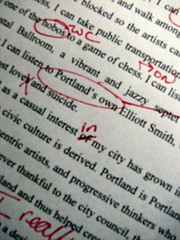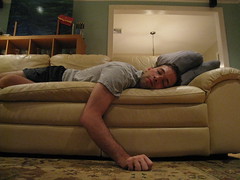I think we’ve all been at least a little tempted. We’re reading our favorite author or the latest, greatest novel and we see a beautiful phrase that perfectly expresses an action we use in our story. It’s lyrical and fresh and captures it clearly and succinctly. We’re so happy we don’t have time for writer envy!
Well, sure. If it’s something short enough and common enough, it may not even be that big of a deal. I came across the phrase “swallowed a sigh” in a book and adopted it to change up with “sighed inwardly.” It’s short, expresses a common action and is plain enough that I doubt it matters where I saw it first. (In fact, I’d be surprised if that author hadn’t read it somewhere.)
But, of course, you can’t plagiarize whole scenes or paragraphs. No. Bad. Don’t.
Lately, though, I’m noticing such great, fresh descriptions that I want to steal bits and pieces of them all the time (or maybe just collected them in a book). Of course, if I do that, the line won’t be as fresh in either book—and I’m just taking that line one step closer to a cliché. It would be ideal, of course, if I could come up with something equally good and fresh and creative (or better)—but now I’m being influenced and intimidated by that phrase.
So where do you draw the line? When is it okay to steal/”adopt” a phrase for your work?
Image by Michael




 So when we’re
So when we’re 


